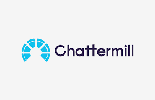Musemantik Companies

Problem StatementThe first challenge that the Catholic Church has is that of lacking engagement. In Europe, in many countries only 15-30% of Catholics are active. It also struggles to use digital communication to reach Catholics. For example, official Facebook diocese pages only reach a tiny proportion of dioceses (often less than 5% of the Catholics), whereas more Catholics use Google Maps church pages for finding churches on an ad-hoc basis which is always transactional. However, we estimate that 80%+ of Google Maps church pages have missing or incorrect information and only 5% of those pages are formally claimed by the churches. Only some churches have reliable websites, and there is no single universal platform for communicating to and engaging Catholics often the most reliable way to be fully informed is to turn up physically in church.This in particular affects the younger Catholics. When the Church tries to be digital, it has an overemphasis on websites and email communication, and is slowly learning to use social media, which is poorly adapted to religion. Secondly, because many sacraments and ceremonies are only valid if the participants attend in person, including attending Mass which is only valid if attended physically, there is overemphasis on proximity-based communication and using paper, e.g. distributing printed newsletters and selling prayer booklets. Only recently is the Church waking up to the reality of live-streaming Masses and they have increased in importance, while still being at mercy of constant technical problems.Most donations are still given in cash or by card. The third problem is that these solutions are often old-fashioned and lack transparency and even the Vatican has realized this and made an emphasis on increasing transparency in 2020. The challenges are that donations end on anonymous accounts without the user being to track the impact or purpose, that the user experience of donating by web buttons or physical donation terminals is poor and most often discards the precious relationship between the donor and the recipient, so these solutions are very transactional rather than being relational.The obvious solution would be to offer mobile apps to increase engagement, but our market research shows great market fragmentation and that 90% of mobile church apps, often local ad-hoc approaches, offer a poor user experience and do not offer state-of-the-art design, responsiveness and functionality. They also lack context, e.g. understanding if a Catholic is obliged to go to church a certain day or not, and the ability to only show relevant information, while catering for various geographical areas. Many of them are actually glorified websites, which do not offer the full mobile user experience.The marketThe total global market size is approximately 80bn and we focus on an addressable market of 1bn with an yearly growth rate of 3%.SolutionOur solution is the Catholic App Platform. This is a two-sided platform (see illustration on next page), offers a smart mobile app to Catholics and a web platform to the churches and dioceses. Here are main aspects of the solution that make it unique and provide value:A smart mobile appIt is a smart mobile app for Catholics, which delivers an excellent user experience. Its intelligence and customization provides more useful and contextually relevant information faster, compared with websites.A single universal platformA single universal platform for engaging and communication with Catholics.A digital companionIt can both be used when the user takes initiative (e.g. Find Mass near me now) and sometimes it can itself take the initiative, e.g. for sending news and spiritual inspirations, and soon also donation prompts. Unlike other communication forms, it acts as a smart companion/assistant.Secure in-app donationsIt has integrated mobile donations (see separate section)Added value for usersUnlike other solutions in this area, it is released and provides value to Catholics in a geographical area even before a church knows about it. This is the freemium bottom-up approach. Then we invite a church to claim its church page and understand the value the app provides.Enables geo-discoveryUser-customizableA Software-as-a-ServiceAn expandable platform Integrates with Google Maps (coming soon)Disrupts donation terminal market (coming soon)
